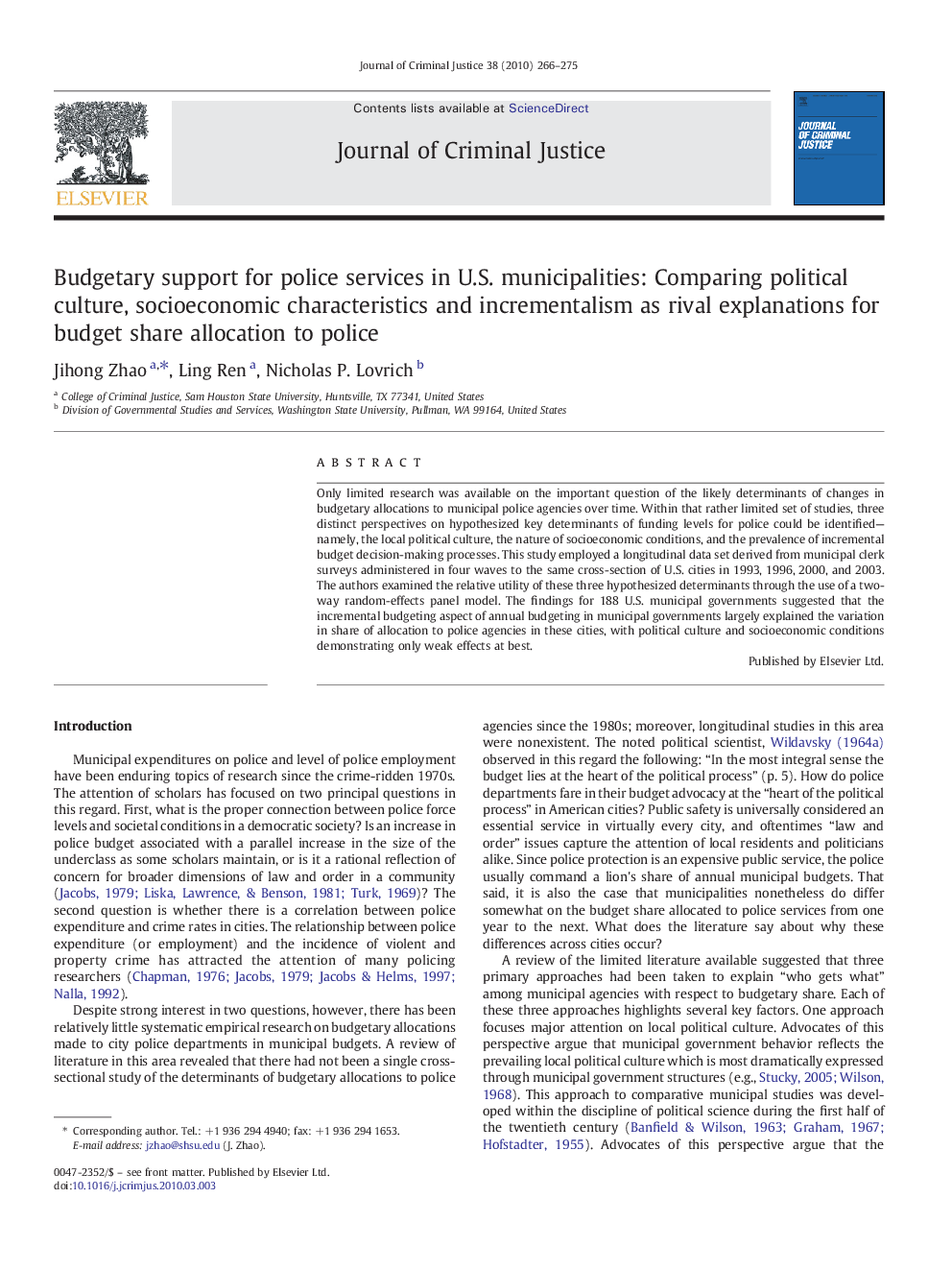| Article ID | Journal | Published Year | Pages | File Type |
|---|---|---|---|---|
| 883143 | Journal of Criminal Justice | 2010 | 10 Pages |
Only limited research was available on the important question of the likely determinants of changes in budgetary allocations to municipal police agencies over time. Within that rather limited set of studies, three distinct perspectives on hypothesized key determinants of funding levels for police could be identified—namely, the local political culture, the nature of socioeconomic conditions, and the prevalence of incremental budget decision-making processes. This study employed a longitudinal data set derived from municipal clerk surveys administered in four waves to the same cross-section of U.S. cities in 1993, 1996, 2000, and 2003. The authors examined the relative utility of these three hypothesized determinants through the use of a two-way random-effects panel model. The findings for 188 U.S. municipal governments suggested that the incremental budgeting aspect of annual budgeting in municipal governments largely explained the variation in share of allocation to police agencies in these cities, with political culture and socioeconomic conditions demonstrating only weak effects at best.
